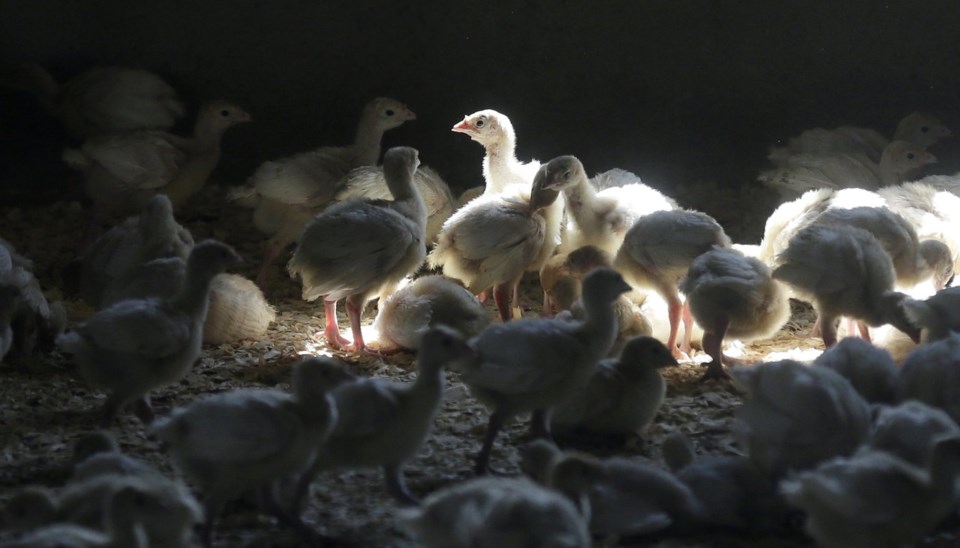The Canadian Food Inspection Agency says it has detected the presence of highly pathogenic avian influenza in commercial poultry at additional locations in two British Columbia municipalities.
The agency says the flu has been detected at two more premises in Abbotsford and Chilliwack, both of which have seen multiple cases since October.
The CFIA says avian influenza is not a food safety concern, and there is no evidence to suggest that eating cooked poultry or eggs could transmit it to humans.
It says additional primary control zones, which seek to prevent the flu’s spread, will be created as required.
The CFIA currently lists 41 premises in Canada where the flu has been detected in bird flocks, with 37 of those in B.C.
A B.C. teenager was hospitalized this month with what has been confirmed as the highly parthenogenic H5N1 variant of the avian flu and was said to be in critical condition, although health officials have not released a recent update for the teen.
The World Health Organization says the avian flu has been circulating widely among wild birds and poultry for more than two decades, but infections in humans are rare.
This report by The Canadian Press was first published Nov. 17, 2024.
The Canadian Press



